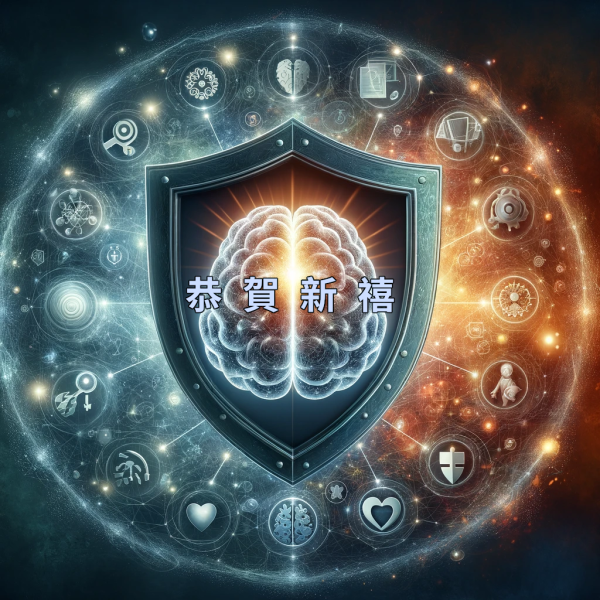
今天大年初一,祝福大家新年快樂。我也正式邁入臺灣歲七十了。新年新希望,我打算未來徹底深入了解《Aging Brain and Cognitive Reserve》 這個題目。主要目標在於:
- 自助、助人
- 盡可能維持最久的生活自理能力
- 盡可能維持良好的語言能力,包括理解和表達
- 盡可能持續職場生涯:做電腦、賣電腦
What is Cognitive Reserve?
Cognitive reserve is a concept that has gained considerable attention in the fields of neuroscience and psychology, referring to the brain's resilience to neuropathological damage. It explains why some individuals with significant brain pathology (e.g., those with Alzheimer's disease or other forms of dementia) manage to maintain cognitive functioning longer than others with similar levels of brain damage. The theory suggests that certain life experiences, such as higher education, engaging in intellectually stimulating activities, maintaining a rich social network, and regular physical exercise, can build this reserve.
Cognitive reserve is thought to be the brain's ability to improvise and find alternative ways of completing tasks by using more efficient brain networks or enlisting alternative brain networks as a form of compensation for those that are damaged. It's not that the brain physically has more neurons or stronger connections per se (though that can be part of it), but rather it's about how flexibly and efficiently the brain can utilize its resources.
The concept highlights the importance of lifestyle factors in potentially delaying the onset of cognitive symptoms associated with aging and neurodegenerative diseases. It suggests that engaging in activities that challenge the brain throughout life can be beneficial in building a buffer against cognitive decline. This is a fascinating area of research because it not only helps to understand the variability in cognitive aging and dementia outcomes but also opens up possibilities for interventions aimed at increasing cognitive reserve, thus improving quality of life for older adults and individuals at risk of neurodegenerative diseases.ChatGPT
認知儲備是一個在神經科學和心理學領域中獲得相當多關注的概念,指的是大腦對於神經病理損傷的韌性。它解釋了為何某些具有顯著腦部病理的個體(例如,患有阿茲海默症或其他形式的癡呆症的人)能夠比其他有相似程度腦損傷的人更長時間保持認知功能。這個理論表明,某些生活經歷,如高等教育、參與智力刺激活動、維持豐富的社交網絡,以及規律的體育活動,可以建立這種儲備。
認知儲備被認為是大腦利用更有效的腦網絡或動員替代腦網絡作為對損傷的一種補償,來臨時發揮和尋找完成任務的替代方法的能力。這並不是說大腦實際上擁有更多的神經元或更強的連接(雖然這可能是其中的一部分),而是關於大腦如何靈活且高效地利用其資源。
這個概念強調了生活方式因素在可能延遲與衰老和神經退行性疾病相關的認知症狀開始的重要性。它表明,一生中參與挑戰大腦的活動對於建立對抗認知衰退的緩衝可能有益。這是一個引人入勝的研究領域,因為它不僅有助於理解認知衰老和癡呆症結果的變異性,還開啟了針對增加認知儲備的干預措施的可能性,從而改善老年人和有神經退化性疾病風險個體的生活質量。ChatGPT
